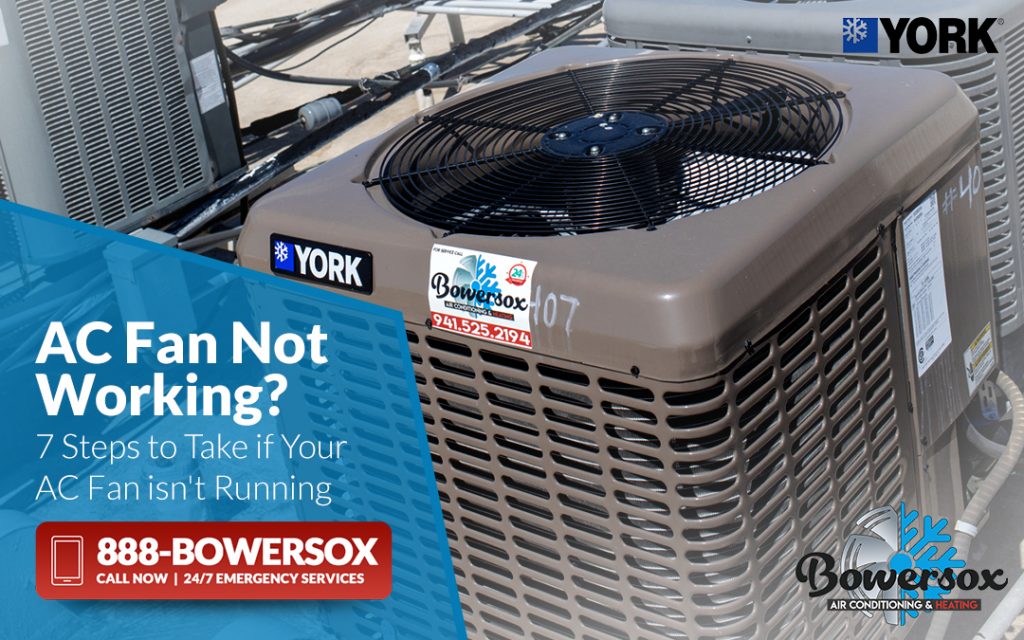Imagine it’s a sweltering summer day, the sun blaring down with relentless heat, and your air conditioning system is humming away—except it isn’t. Your AC compressor is working like a trooper, churning away diligently, yet the fan that distributes the cool air has decided to take a vacation. This scenario isn’t just a minor inconvenience; it can escalate quickly from mere discomfort to a full-blown crisis. So, why would an AC fan fail while the compressor operates? Let’s embark on an exploration to demystify this puzzling predicament.
Firstly, it’s essential to understand the crucial role that the fan plays in the overall operation of your air conditioning system. The compressor is responsible for pressurizing the refrigerant and circulating it through the system. However, without the fan, that chilled air remains stagnant. The fan not only helps in distributing the cool air throughout your home but also plays a vital role in ensuring that the compressor doesn’t overheat. When fans fail, the repercussions can be severe, often leading to additional system damage.
One of the primary culprits of fan failure is electrical issues. The AC fan, like many electrical components, relies on a designated voltage to function optimally. Should there be a disruption—whether due to faulty wiring, a blown fuse, or issues with the thermostat—the fan can experience inadequate power supply, rendering it ineffective. Tracing the wiring and ensuring that the electrical connections are intact could resolve the fan’s sudden refusal to cooperate.
Another potential villain appears in the form of the fan motor itself. The motor is the powerhouse that drives the fan blades, and, much like any mechanical device, it can wear out or malfunction over time. The most common signs of a failing fan motor include unusual sounds—think grinding or squealing—as well as overheating. If the motor isn’t receiving the lubricant it needs or if it has experienced physical damage, it might cease to function entirely. Regular maintenance can sometimes mitigate these issues, but once the motor yields, it often necessitates a replacement.
Next, consider the bearings that allow the fan to rotate smoothly. As these bearings become worn or dry, friction increases, placing additional strain on the motor. The fan may become sluggish, refuse to turn at all, or emit disconcerting sounds. In this scenario, simply lubricating the bearings can promise an inexpensive fix. However, if the wear is extensive, replacing the bearings might be warranted.
Additionally, debris can play an unexpected role in the fan’s inability to operate. Dust accumulation, leaves, or even foreign objects can obstruct the fan’s blades. Imagine trying to swim in a pool—if something were inhibiting your movement, it would be exceedingly frustrating. Similarly, any obstruction can hinder the fan from turning correctly. A periodic cleanup can stave off this problem and keep your AC system running smoothly.
Furthermore, we must discuss the notorious capacitor. This small but mighty component stores electrical energy and releases it to start the fan motor. If the capacitor fails, the fan may struggle to start, or it may not start at all, despite the compressor running seamlessly. If you suspect this to be the case, a technician can quickly diagnose and replace the faulty capacitor, getting your system back in business in no time.
We also cannot overlook the importance of the settings on your thermostat. A misconfigured thermostat can lead not only to incorrect readings but may also signal the AC system to operate under erroneous parameters. Review the settings and ensure the thermostat is functioning correctly; ensuring your thermostat is set correctly can be the simplest answer to a very complicated problem.
Another tempting yet common misconception comes in the form of the idea that if the compressor is running, the AC should be cooling. However, it’s crucial to recognize that these two components are interdependent but not outrightly compatible in failure. A compressor can operate without necessarily keeping the space cool if the fan isn’t blowing air. This disconnect often leads homeowners to misdiagnose their systems, leading to unnecessary repairs or replacements.
If after exploring these avenues the fan still refuses to cooperate, consulting a professional might be your best course of action. Certified HVAC technicians possess the expertise to diagnose the issue accurately and recommend repairs. They can examine your entire system, identifying less obvious problems that you might miss. In doing so, they provide invaluable peace of mind, reassuring you that your home will once again become a haven from the summer heat.
The next time you find your AC fan failing while the compressor is still whirring away, remember that you are not alone. Numerous homeowners face this challenge. By considering the myriad of potential causes—ranging from electrical issues and motor failures to capacitor breakdowns and debris problems—you arm yourself with the knowledge necessary to combat this issue with confidence. Increasing your understanding not only serves to uplift your awareness but places you firmly in control of your home’s cooling needs.
In conclusion, keeping your air conditioning system in optimal working order is a multifaceted endeavor requiring vigilance, maintenance, and sometimes expert intervention. Equip yourself with this knowledge, stay observant, and ensure a comfortable living space, setting the stage for a serene and cool summer, undeterred by mechanical mishaps.
